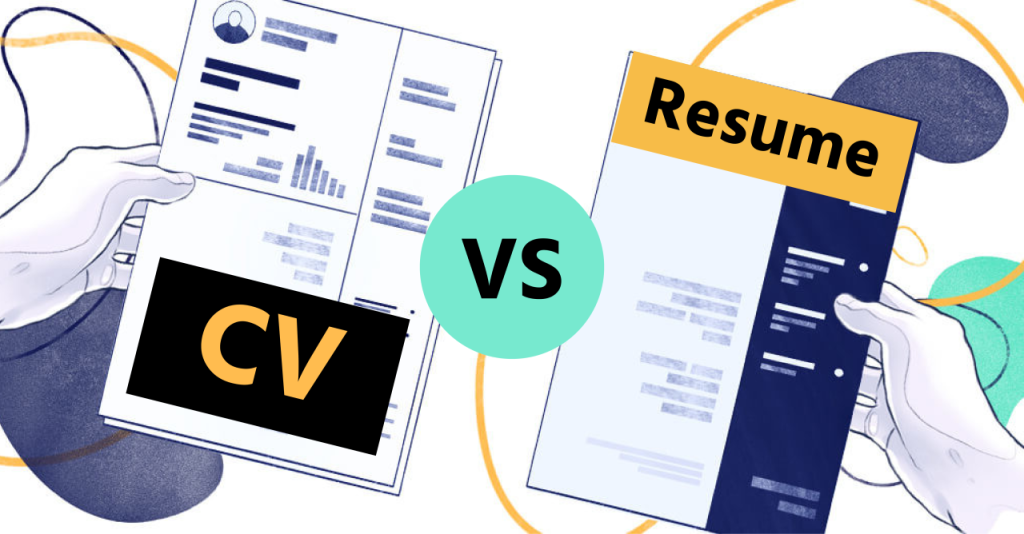Understand the difference between a resume vs CV. Learn the right format, templates, and online tools for freshers and professionals. Try Impacteers free resume builder today.

If you’ve ever searched for jobs online, you’ve probably seen recruiters ask for a resume in one posting and a CV (curriculum vitae) in another. Many freshers—and even experienced professionals—use the terms interchangeably.
But here’s the truth: while both documents share the object of presenting your skills and experience, the difference lies in format, length, purpose, and level of detail.
Visit us >>>https://www.impacteers.com/home/resume
Choosing the right one can make or break your chances of landing interviews. In this guide, we’ll explain resume vs CV in detail, compare formats, share templates and samples, and show how the Impacteers online resume builder can help you create a professional document that gets noticed.
What Is a Resume?
A resume is a concise, 1–2 page document summarizing:
- Skills relevant to the job
- Work experience
- Education
- Achievements
Key Features of a Resume:
- Length: 1–2 pages
- Purpose: Apply for a specific job role
- Format: Tailored to match the employer’s requirements
- Focus: Skills and accomplishments over career history
Example Use:
A fresher applying for a marketing executive role might create a resume highlighting their social media skills, internship experience, and academic projects.
What Is a CV (Curriculum Vitae)?
A CV is a detailed, multi-page document that covers your entire career history.
The term curriculum vitae literally means “course of life” in Latin—making it a comprehensive record of:
- Education
- Research work
- Publications
- Professional achievements
Key Features of a CV:
- Length: 2–10+ pages
- Purpose: Academic, research, and global job applications
- Format: Chronological and exhaustive
- Focus: Complete history rather than only relevant skills
Example Use:
A university professor applying for a research grant might submit a CV listing every publication, award, and teaching assignment.
Resume vs CV: The Key Differences
| Feature | Resume | CV (Curriculum Vitae) |
| Length | 1–2 pages | 2–10+ pages |
| Purpose | Specific job applications | Academic/research careers & global hiring |
| Format | Skills-based or hybrid | Chronological |
| Focus | Relevant achievements and skills | Complete career history |
| Customization | Highly tailored for each application | Rarely customized |
| Use in India | Corporate job applications | Academic and international job applications |
When to Use a Resume in India
- Applying to corporate roles (IT, marketing, sales, etc.)
- Attending campus placements
- Uploading your profile to job portals
Tip: Keep it short, targeted, and results-driven.
When to Use a CV in India
- Applying for academic positions or fellowships
- Research or Ph.D. applications
- International jobs in Europe, the Middle East, or Africa (where “CV” is the preferred term)
Choosing the Right Format for Freshers
If you’re a fresher:
- Use a functional resume format to highlight skills over work experience.
- Include internships, projects, and relevant certifications.
- Avoid overloading with personal details that don’t support the job objective.
Resume and CV Formats You Can Use
1. Chronological Format
Best for experienced candidates with a strong work history. Lists experiences from most recent to oldest.
2. Functional Format
Best for freshers—focuses on skills and academic achievements.
3. Hybrid Format
Mixes both styles—ideal for career changers.
Templates, Samples, and Downloads
Recruiters appreciate clean, well-structured documents. Here’s what works:
- Simple Word templates with clear headings
- Online resume maker tools for quick customization
- Downloadable PDF versions for professional sharing
Platforms like Impacteers resume builder offer free templates, editable formats, and ready-to-use samples so you can skip formatting struggles.
About us >>>https://blog.impacteers.com/
How to Create a Resume or CV That Gets Interviews
- Tailor for Each Job
Use keywords from the job description.
- Highlight Achievements
Use numbers to show results—e.g., “Increased social media engagement by 40%.”
- Keep Formatting Clean
Avoid excessive colors and graphics unless applying for creative roles.
- Proofread
Typos can instantly damage your credibility.
- Use a Professional Builder
Tools like Impacteers resume builder ensure your document is ATS-friendly and visually appealing.
Why Online Resume Makers Are Game-Changers
Instead of starting from scratch in Word, online builders:
- Provide ready-made templates
- Suggest skill phrases based on industry
- Offer instant PDF downloads
- Save multiple versions for different jobs
Impacteers resume builder stands out with:
- Free account setup for freshers
- Templates designed by HR professionals
- Built-in guidance to improve your career object statement
- Direct integration with career events for networking

Mistakes to Avoid in Resumes and CVs
- Overstuffing with irrelevant information
- Using generic “one-size-fits-all” documents
- Ignoring proper file naming (e.g., “John_Doe_Resume.pdf” looks professional)
- Focusing only on duties instead of achievements
- Not updating your resume or CV regularly
Sample Resume Object for Freshers
To secure an entry-level marketing position where I can apply my skills in content creation, data analysis, and digital strategy to contribute to company growth.
Sample CV Profile for Academics
Dedicated academic professional with 10+ years of teaching and research experience in the field of biotechnology, with multiple publications in peer-reviewed journals.
Conclusion
While both a resume and a CV aim to showcase your skills and achievements, the choice between them depends on your career goals, job type, and location.
For most job seekers in India—especially freshers—a well-crafted resume is the right tool for securing interviews. For academic or research-focused roles, a CV is the better choice.
Instead of struggling with format and layout, use professional tools like Impacteers resume builder to create polished, ATS-friendly documents in minutes. Whether you need a sample, a template, or a quick download, having the right document in hand is the first step toward your next career opportunity.
5 Frequently Asked Questions (FAQs)
1. What’s the main difference between a resume and a CV?
A resume is short and targeted; a CV is long and comprehensive.
2. Do freshers in India need a CV or a resume?
Most freshers applying for corporate jobs should use a resume. CVs are more for academics and research.
3. Can I use a free online resume maker?
Yes—platforms like Impacteers resume builder offer free templates and formats tailored for different industries.
4. What’s the best file format for submitting resumes and CVs?
PDF is preferred—it maintains formatting across devices.
5. Can I download resume templates in Word format?
Yes—many online builders allow Word and PDF downloads so you can customize as needed.



Post Comment